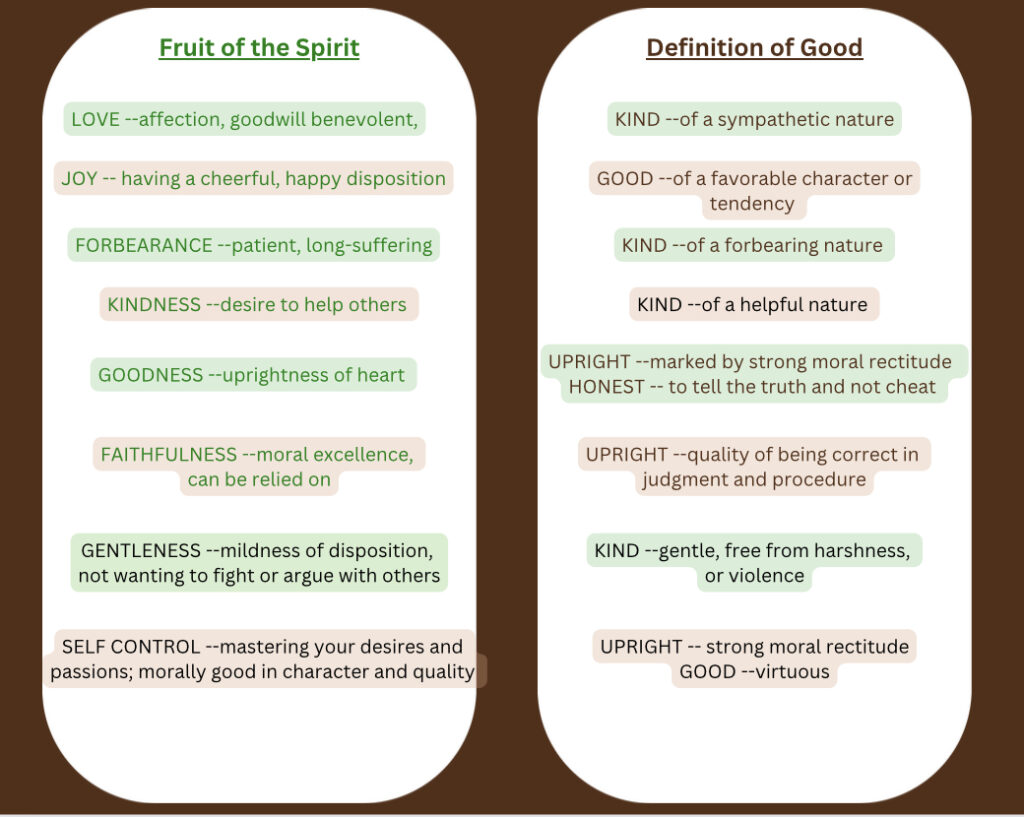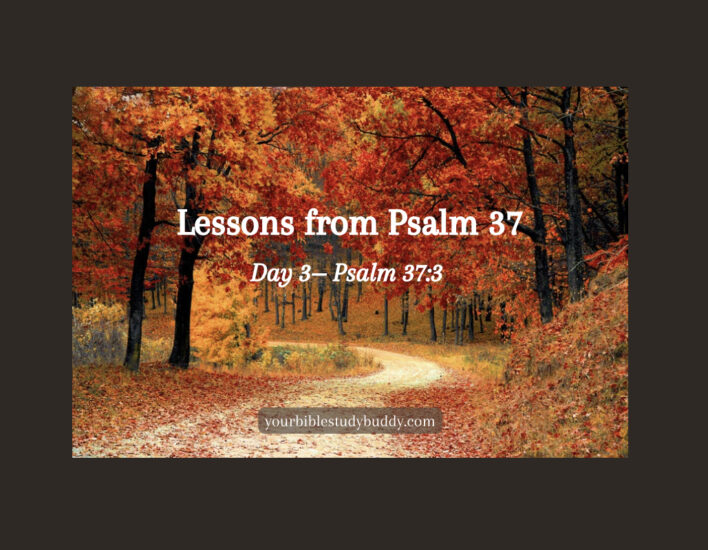“Trust in the LORD and do good;
Dwell in the land and cultivate faithfulness.”
~~Psalm 37:3~~
As I read Psalm 37:3, the first thing I noticed was that there seemed to be FOUR DIRECTIVES that give me a different choice besides the “fretting” spoken of in verse 1.
TRUST IN THE LORD
DO GOOD
DWELL IN THE LAND
CULTIVATE FAITHFULNESS
Let’s investigate the first two of the four today.
TRUST IN THE LORD (inward)
The Hebrew word for trust is <batach> and it means to hie for refuge; to be secure and fear nothing for oneself. If you’re like me, you’re thinking, “what the heck is ‘hie’?” Well, the dictionary says it means “to cause oneself to go quickly”. As I considered that definition, what caught my attention was the word “cause”. If I have to “cause” myself to do something, then it doesn’t come instinctively. I have to make myself do it. With that in mind…
PAUSE TO PONDER what do you do when you are afraid or distressed? To whom do you run? A friend? A sibling? A parent? A mate? As I answered that honestly, I was pretty convicted. When it comes to “hie-ing” for refuge, I must make a conscious choice as to whom to “hie”.
What matters most isn’t your level of trust,
but rather what you are placing your trust in.
If the person I’m running to for “refuge” is a weak, fallen human being just like me, then I’m surely going to be disappointed. I think that’s why the rest of the phrase is there.
This verse tells us to trust in the Lord <Yehovah>. He is the self-existent One. He is the eternal One. He is the only One who needs no one else to “be”. He never has. He never will. <Yehovah> is eternal. He has no beginning. He has no end. He is I AM.
PAUSE TO PONDER. If I focused on the “I AM-ness” of my God, instead of on what I see going on in and around me, I would have ZERO reason to fret. Just wow…(and ouch). This shows me where I have to retrain my mind… allowing the Spirit of God to use the Word of God to shift my focus. I am often guilty of getting so focused on the “me-ness” of my situation, instead of the “God-ness” of my situation. I sit in feelings of “how’s this gonna affect ME?!”, when I should be looking for “what God is desiring to accomplish through this situation and in me?” Yep. Got some mind-renewing to do.
DO GOOD (outward)
The Hebrew word for the word do is <`asah>: to do or make a thing. To do something is to bring it to pass, to perform it, to bring it about. We are commanded to do good <towb> which describes actions that are good, kind, upright; to act and live honestly. I don’t like to assume I know what words mean, so once again, I consulted the dictionary.
- Good means of a favorable character or tendency : virtuous : of the highest worth or reliability.
- Kind means of a sympathetic or helpful nature : of a forbearing nature : gentle : arising from or characterized by sympathy or forbearance.
- Upright is to be marked by strong moral quality to use correct judgment or procedure. To act and live honestly means that my life is a display of behavior that has been affected by Jesus, and thus being a life that is real and genuine – to live a life apart from hypocrisy and pretense.
PAUSE TO PONDER. Can people tell that you have been affected by the time you spend with Jesus, or do you come away from your time with Him unchanged? Or perhaps I need to back up a little further and ask, do you have a set-aside time to spend in God’s Word, listening to His Spirit and allowing Him to teach you?
As I researched each of these descriptions of “good”, the Fruit of the Spirit came to mind. Here is a list of the fruit of the Spirit and the corresponding aspect of “Good”. I love when God connects the dots from the Old Testament to the New Testament for me.

We can be so thankful for the Holy Spirit of God living inside us, prompting and enabling us to “do good” by working in and through us. His job is to produce the fruit. My job is to die to self and cooperate with Him. To give God free-reign in your heart and mind, you have to trust in Him, and doing good will be a natural (or should I say “supernatural”) byproduct of that trust.

